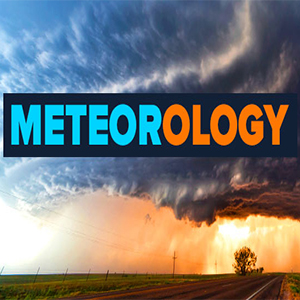Why You Should Choose a Career in Meteorology?
 Meteorology is a division of Atmospheric science that focuses on the change in weather conditions within the lower stratosphere and troposphere. It mainly deals with the physical, dynamical and chemical state of the Earth’s atmosphere where the main work involves prediction and forecasting of the Earth’s weather. If you want to study meteorology, you need to possess enough interest in various earthly processes in the atmosphere.
Meteorology is a division of Atmospheric science that focuses on the change in weather conditions within the lower stratosphere and troposphere. It mainly deals with the physical, dynamical and chemical state of the Earth’s atmosphere where the main work involves prediction and forecasting of the Earth’s weather. If you want to study meteorology, you need to possess enough interest in various earthly processes in the atmosphere.
Eligibility Criteria to Study Meteorology
Meteorology involves pursuing an undergraduate B.Sc. or B.Tech course after completing 10+2 with science.
With different eligibility criteria in different colleges and universities, there are a number of reputed colleges that conduct a B.Sc. programme in Meteorology. You can pursue a B.Sc. degree in meteorology after qualifying national level entrance examinations like JEE main/JEE Advanced or you can also opt for the state-level engineering entrance examinations.
You should have studied science at 10+2 with Physics, Mathematics, and Chemistry with at least 60 percent marks to get admission in any IIT.
You could also get admission to study meteorology based on your 10+2 board marks. It is the eligibility criteria of some colleges that consider board marks.
Career Prospects in Meteorology
Previously, the demand of studying meteorology in India was not that much due to lack of information among the students regarding the career opportunities that this branch provides to students.
As the economy of India is rising so is the industrial application of weather and climate-based information is also increasing. Sectors like the agriculture industry, aviation, energy resources, insurance and financial services, oil and gas exploration, and risk management are hiring meteorologists for the application of meteorology in their sectors.
If you graduate in meteorology, you can work in various branches like the meteorological departments, space organizations, research and development areas of weather and climate forecasting. Organizations like ISRO also require meteorologists for research purposes. As a meteorologist, you will also have the option to impart your knowledge by working as a professor. Some private companies also recruit meteorologists for environmental pollution control works.
By becoming a meteorologist, you can also work for the military operations like troop movements, airplane flights, missile launches and ship navigation where all these heavily depend on the accurate weather information. In this field, the role of a meteorologist is very important. You will also get career-enhancing opportunities to work in abroad assignments for the military departments.
Since meteorology is a field where very few students pursue this course, it offers a highly rewarding career. It is a challenging work profile, where the potential salary increases with every experience you gain. The Indian government offers lucrative salaries to fresher meteorologists that lies between INR 10k to INR 25k.
An Industrial meteorologist works to study and solve issues that are related to pollution and emissions, whereas a physical meteorologist observes the physical nature of the atmosphere, the chemical composition and optical, acoustical and electrical properties of the atmosphere. Physical meteorologists give solutions to environmental problems. The work of a research meteorologist is to monitor the climatic and weather patterns and then analyze and scrutinize the data generated. They are also responsible for studying the causes of the greenhouse effect and giving solutions to it.
As mentioned previously that you can work as a professor or a lecturer, you will need to qualify UGC NET for taking up teaching jobs. Also, you will get a chance to study M.Sc. or M.Tech programme in Meteorology after bachelor’s degree.

